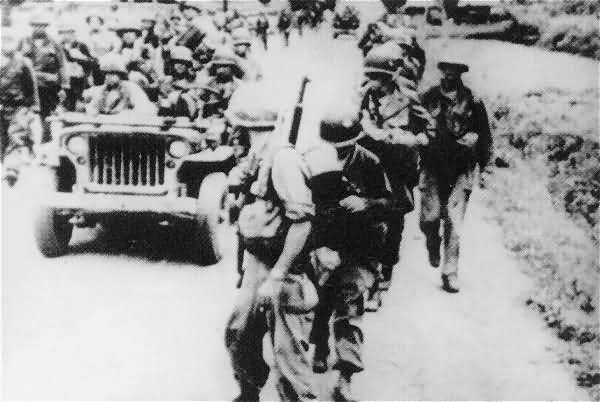Home By Christmas
Until 10/17/50 General MacArthur restrained U.N. ground forces other than ROK troops from operating north of a line crossing the Chongchon River at Kunu-ri. But on 10/24, as the leading U.N. forces crossed the Chongchon at Sinanju, he instructed all Eighth Army to press forward to the northern limits of Korea.

The Chinese Beijing KW Museum says this photo was when Eighth Army attacked from the Chongchon, 10/25/50 in an assault for the Yalu.
Using the same strategy of speed of attack that had won our great victory at Inchon, MacArthur strove to unite all Korea before China could intervene effectively. Partly because of poor intel from CIA, he was ignorant that Mao was already intervening and was infiltrating a formidable veteran Army into position for counter-attack, making speed far less important than preparation. Not only was he not building strong fall-back positions in depth should a counter-attack occur, but at this time Eighth Army's overall logistical situation was in bad shape, with hundreds of miles of bad roads between support railheads and the divisions needing support. Added to the weakness of capability to deal with serious unexpected problems was a casualness among our leadership caused by their belief that the war was all but over.
China's First Phase Offensive was soon to shock and smash back our lead elements, but since this was only a Recon in force by a small part of the Armies by China already had in place, and they withdrew after our own counter attack, we believed we could regroup and finish the job in time for Christmas shopping in Tokyo.
Long before Christmas we, and countless innocent civilians, paid the price for ignoring the basic military axiom that one should always be prepared for what an enemy might be capable of doing, not merely for what we hope he will do.

